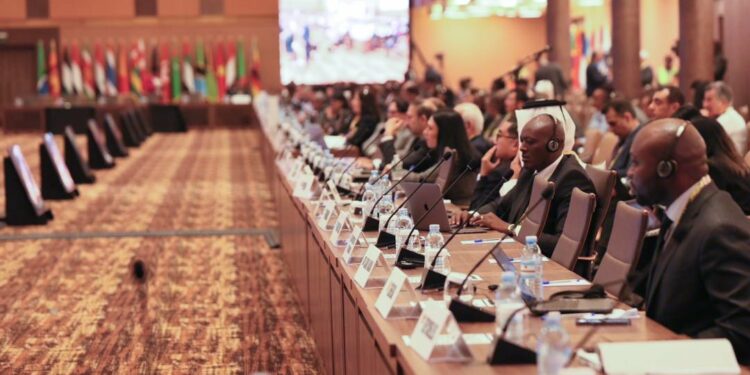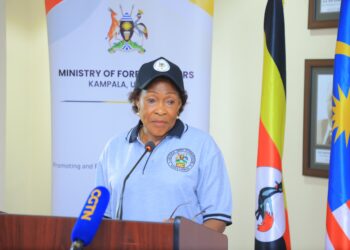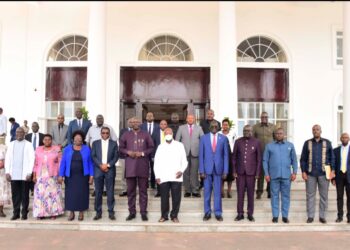The 19th Non-Aligned Movement (NAM) summit has today kicked off at Speke Convention Center in Kampala.
The summit is running from 15th to 20th January, 2024 under the theme: “Deepening Cooperation for Shared Global Affluence”.
In his opening remarks, the Minister of Foreign Affairs, Gen. Abubaker Jeje Odongo called upon member states to join hands in addressing the challenges affecting them.
“Today we are faced with several challenges around the world including insecurity, health pandemics, climate change and terrorism, among others. We also recognise challenges in financing for development and the very serious issue of the debt burden that pins a very depressing global economic outlook,” he said.
“It is therefore crucial for us to address the existing, new and emerging issues collectively and in the interest of our membership for the good of mankind,” he added.
The Minister also revealed that Uganda believes that multilateralism and solidarity are required much more than ever so that they individually prepare and collectively respond to further challenges.
At the same event, Ambassador Adonia Ayebare the Permanent Representative of Uganda to the United Nations was elected as the Chairperson for the Senior Official Meeting of the 19th Non-Aligned Movement Summit of Heads of State and Government.
Meanwhile, during the summit, Uganda under the leadership of President Yoweri will take over the chairmanship of NAM from Azerbaijan.
The NAM is a forum of 120 countries that are not formally aligned with or against any major power bloc. It was founded with the view to advancing interests of developing countries in the context of Cold War confrontation. After the United Nations, it is the largest grouping of states worldwide. All 120 states together comprise about 4.64 billion people, or about 58.35% of the world’s population.
The NAM gained the most traction in the 1950s and early 1960s, when the international policy of non-alignment achieved major successes in decolonization, disarmament, opposition to racism and opposition to apartheid in South Africa, and persisted throughout the entire Cold War, despite several conflicts between members, and despite some members developing closer ties with either the Soviet Union, China, or the United States. In the years since the Cold War’s end in 1991, the movement has focused on developing multilateral ties and connections as well as unity among the developing nations of the world, especially those in the Global South.
Do you have a story in your community or an opinion to share with us: Email us at editorial@watchdoguganda.com












